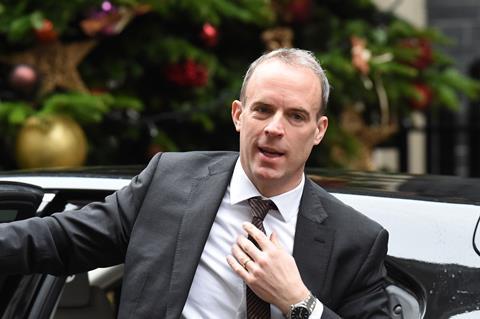The government published the first set of criminal justice scorecards today – which the lord chancellor says will show where the system is failing victims and ‘drive up standards’.
Performance scorecards were first announced in June as part of the government’s plan to return the volume of rape cases going through the courts to 2016 levels by the end of this parliament.
Today, the Ministry of Justice published the first national scorecard for adult rape offences and an all-crime national scorecard. Localised scorecards will be published over the next six months. All of them will continue to be published on a quarterly basis.
Today’s scorecards highlight performance within the following three stages: crime recorded to police decision; police referral to Crown Prosecution Service; and CPS charge to case completion in court.

Specific measures for each stage include improving timeliness and increasing victim engagement.
The scorecards contain several statistics.
For instance, for adult rape offences, the number of suspects referred by the police to the CPS for early advice or charging was 622 between April and June 2021. The aim is to return the figure to 2016 levels, when the mean quarterly number was 766.
According to data on improving quality of justice for adult rape cases, 72% of cases resulted in a complete trial between April and June, 12% were rearranged on the day of the trial, 9% pleaded guilty before the trial began, and 16% pleaded guilty at the Crown court.
The Ministry of Justice has also opened a consultation on reforms to improve victims’ experience and confidence in the criminal justice system. The department is seeking views on how to enshrine the Victims Code in law, the role of different oversight mechanisms, increasing the victims surcharge, and how to improve community-based support services and advocacy support.
Commenting on the proposed reforms, Law Society president I. Stephanie Boyce said: ‘We support measures that are designed to improve the experience of victims in the criminal justice system and the way agencies within the system interact and communicate with them, as long as such measures do not impact on a defendant’s right to a fair trial.
‘We will examine the consultation proposals carefully but while there is a massive backlog in the crown court victims and witnesses, as well as defendants, will still be waiting far too long for their trial to be accommodated, due to the criminal justice system being starved of resources for so long.’
The consultation closes on 3 February.
This article is now closed for comment.



























9 Readers' comments